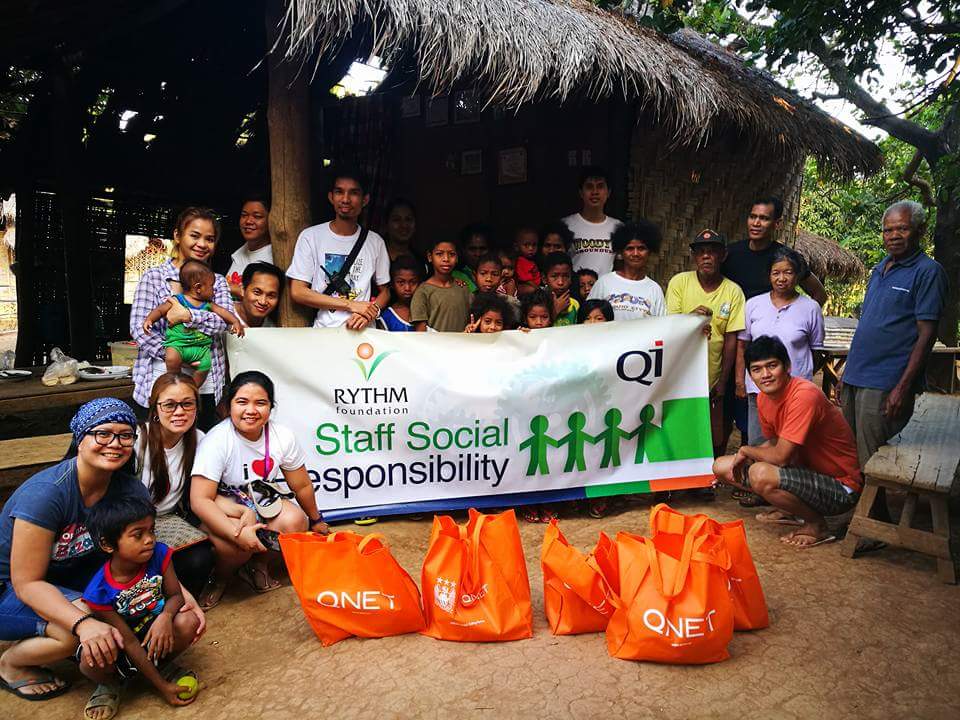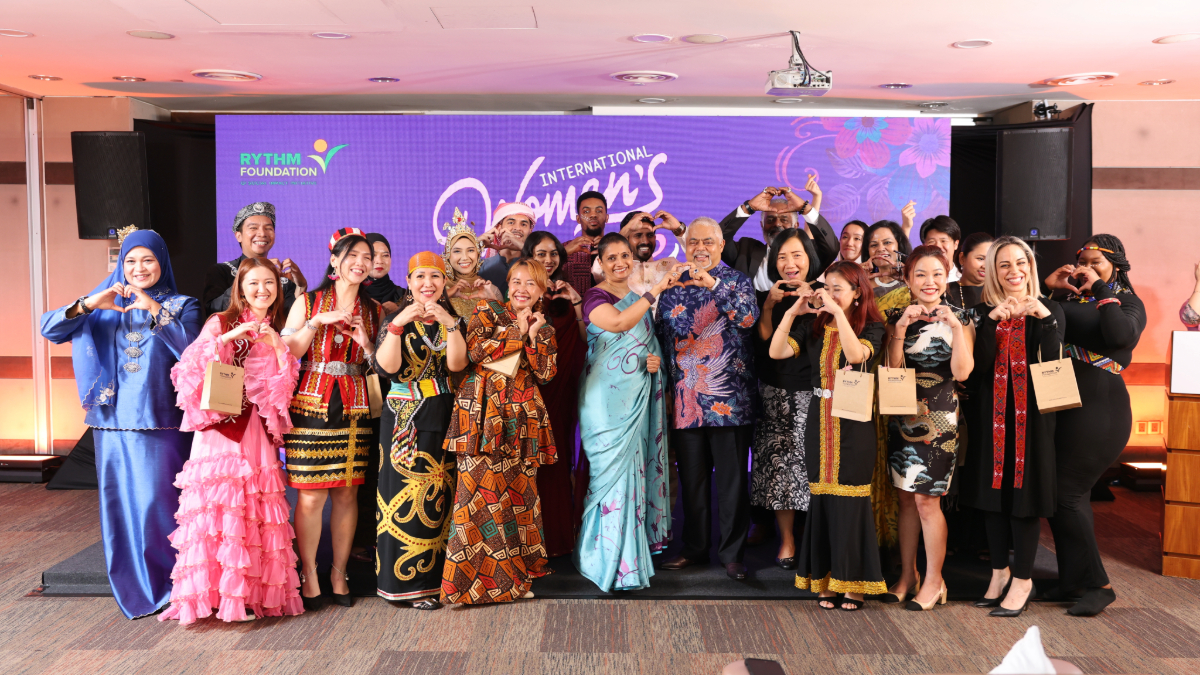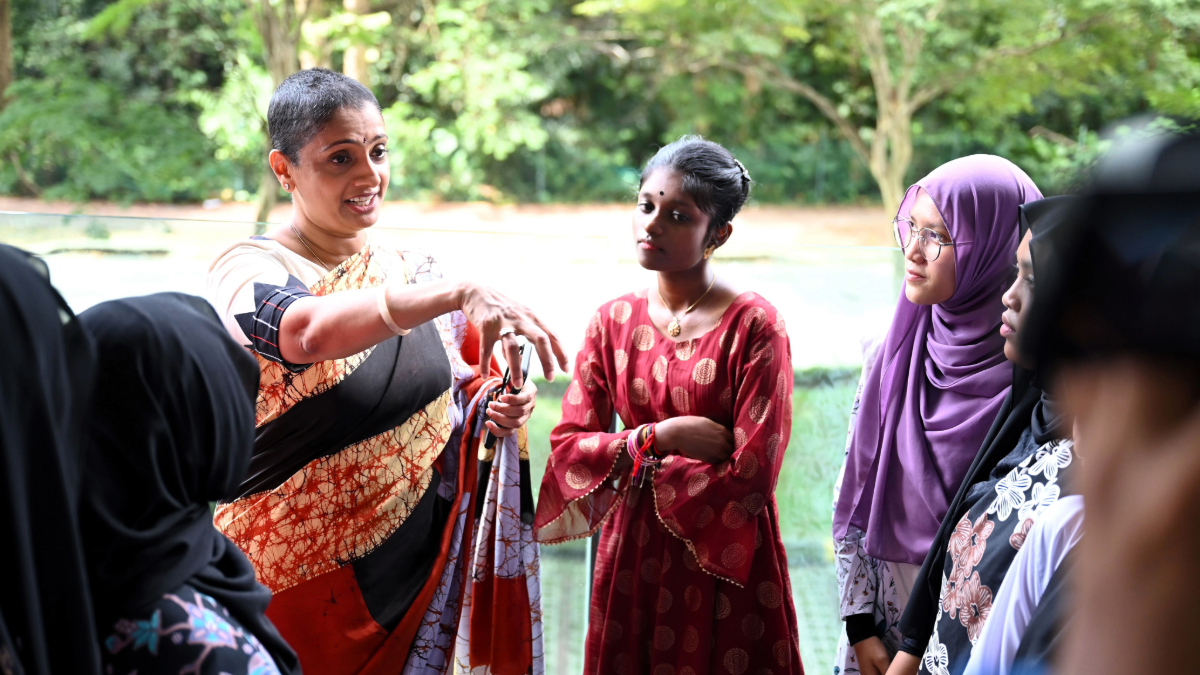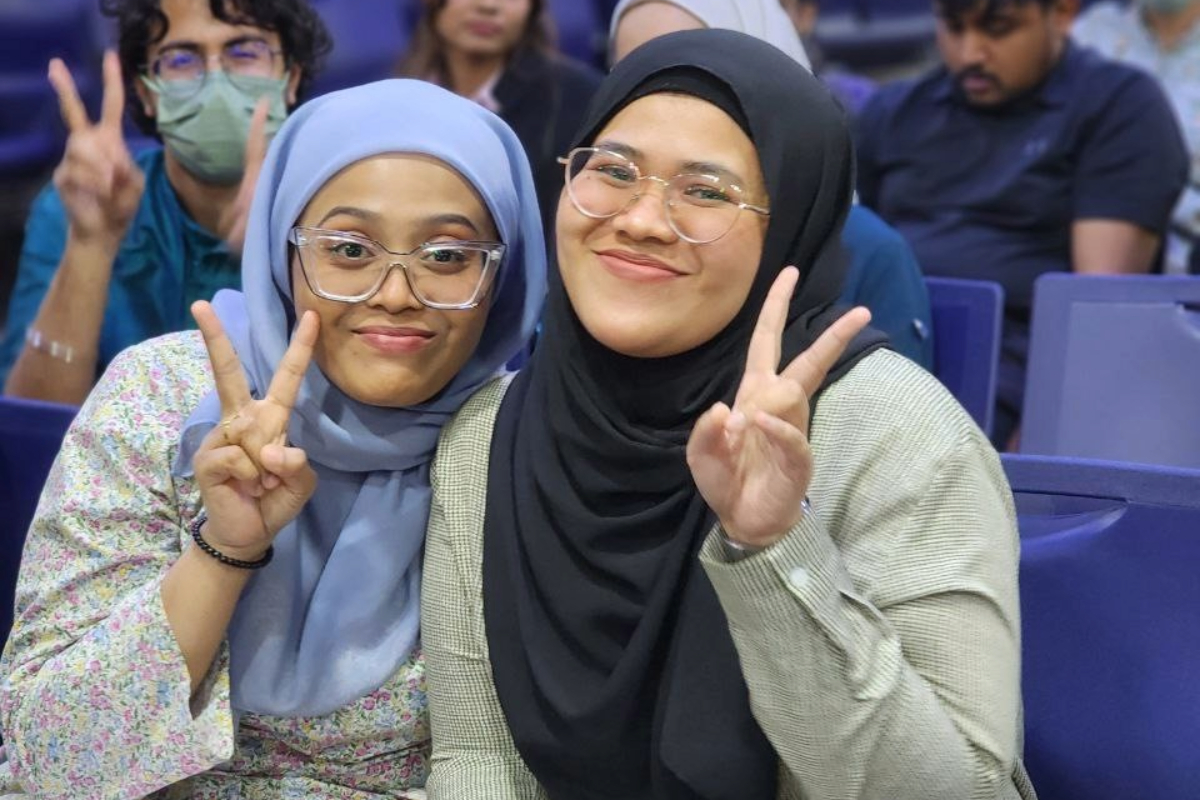
 After the visit to the Pawikan Conservation Centre, volunteers carried out two more activities simultaneously: a beach cleanup and a tree planting activity. 47 of the volunteers travelled an hour from the Centre to take part in a coastal cleanup activity, where they were divided into groups of 8 and given waste bags for the trash they picked up along the shores of Bataan. Once all the waste bags were filled, they were handed over to the town officials for proper disposal. Volunteer May Isais felt that the beach cleanup activity was a fruitful and great experience. “It has always been a fun way for QI Philippines staff to help take care of the environment for the next generations while enjoying the beautiful scenery,” she added.
The Pawikan Conservation Programme and Coastal Cleanup activities were aimed at educating our staff about the importance of preserving our environment for the next generations and to support the local community, especially those who are working day and night just to rescue and protect the pawikans.
After the visit to the Pawikan Conservation Centre, volunteers carried out two more activities simultaneously: a beach cleanup and a tree planting activity. 47 of the volunteers travelled an hour from the Centre to take part in a coastal cleanup activity, where they were divided into groups of 8 and given waste bags for the trash they picked up along the shores of Bataan. Once all the waste bags were filled, they were handed over to the town officials for proper disposal. Volunteer May Isais felt that the beach cleanup activity was a fruitful and great experience. “It has always been a fun way for QI Philippines staff to help take care of the environment for the next generations while enjoying the beautiful scenery,” she added.
The Pawikan Conservation Programme and Coastal Cleanup activities were aimed at educating our staff about the importance of preserving our environment for the next generations and to support the local community, especially those who are working day and night just to rescue and protect the pawikans.

 Meanwhile, the other 13 volunteers reached out to the Aeta community who live in an area so remote that it was only accessible by car. The Aeta are Filipino indigenous people who live in the mountainous parts of Luzon, including the province of Bataan. They rely mainly on farming or hunting but are also among the poorest of the poor. With the continuous deforestation and industrialisation in Bataan, these indigenous people are greatly affected since the forest is their main source of living.
The visit saw volunteers interacting with the Aetas and having a taste of the lifestyle of the indigenous community. Volunteers also put together fun games for the children and handed out chocolates and candies. The children, who actively participated in the games, were overjoyed and continuously thanked the team. After the games, volunteers planted mahogany trees around the area. The community also received donations in forms of groceries, medicines, foods, clothes, toys, and books. In return, volunteers were treated to some local speciality dishes – boiled peanuts and nilupak na saging saba (mashed banana).
A volunteer, Joan Salas said, “We experienced the community’s way of life, and realised how integral the forest is to them. It’s just timely that the tree planting activity was part of our programme. We may not be able to replace all the trees that have been illegally cut, but we hope that the trees we have planted will contribute to the reforestation project of the local government.”
Meanwhile, the other 13 volunteers reached out to the Aeta community who live in an area so remote that it was only accessible by car. The Aeta are Filipino indigenous people who live in the mountainous parts of Luzon, including the province of Bataan. They rely mainly on farming or hunting but are also among the poorest of the poor. With the continuous deforestation and industrialisation in Bataan, these indigenous people are greatly affected since the forest is their main source of living.
The visit saw volunteers interacting with the Aetas and having a taste of the lifestyle of the indigenous community. Volunteers also put together fun games for the children and handed out chocolates and candies. The children, who actively participated in the games, were overjoyed and continuously thanked the team. After the games, volunteers planted mahogany trees around the area. The community also received donations in forms of groceries, medicines, foods, clothes, toys, and books. In return, volunteers were treated to some local speciality dishes – boiled peanuts and nilupak na saging saba (mashed banana).
A volunteer, Joan Salas said, “We experienced the community’s way of life, and realised how integral the forest is to them. It’s just timely that the tree planting activity was part of our programme. We may not be able to replace all the trees that have been illegally cut, but we hope that the trees we have planted will contribute to the reforestation project of the local government.”







